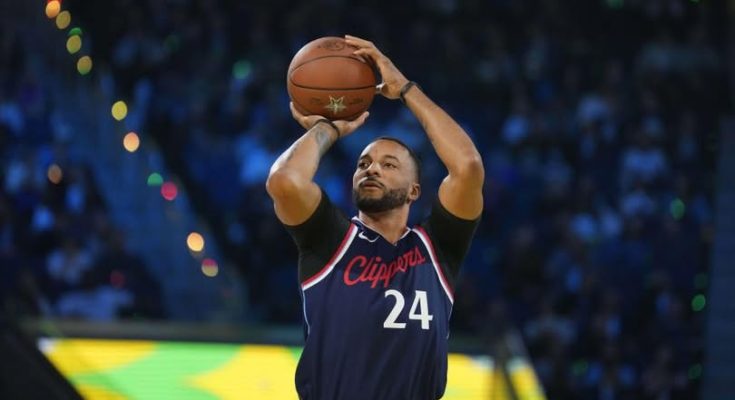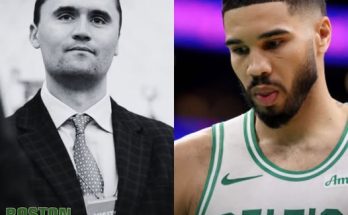Norman Powell, the explosive NBA guard known for his championship pedigree and offensive firepower, is reportedly set to make his debut for the Jamaican national team in the coming international window. This development marks not only a pivotal moment for Powell’s career but also a significant leap forward for Jamaican basketball. For a country known more globally for sprinting and reggae than for its contributions to the hardwood, Powell’s involvement could represent a turning point—both symbolically and competitively.
Powell, currently with the Los Angeles Clippers, has long been a player of intrigue within international circles due to his Jamaican heritage. Born in San Diego, California, Powell has never shied away from his cultural roots. While many athletes of Caribbean descent have opted to play for the United States, where infrastructure and exposure are greater, Powell has made a bold and commendable choice to represent Jamaica. This decision comes at a time when national teams around the globe are scrambling to secure the services of dual-national athletes, and Powell’s decision signals both pride and belief in what Jamaica could build as a basketball program.
At 6-foot-4, Powell brings a unique mix of athleticism, shooting ability, and veteran leadership to a Jamaican squad that has struggled to make its mark in FIBA competition. He averaged double-digit scoring in each of the past five NBA seasons and was a key role player during the Toronto Raptors’ 2019 NBA Championship run. His experience in high-pressure playoff moments, including deep postseason battles against the best of the best, offers the kind of competitive edge that the Jamaican team has sorely lacked. His presence alone will elevate the level of expectations within the camp and undoubtedly raise the performance of teammates who now get the chance to work alongside a player molded by the NBA’s intensity and demands.
What makes this move even more intriguing is its timing. The Jamaican Basketball Federation has been in a slow but steady rebuild mode for the better part of the last decade. They’ve been seeking ways to reinvigorate interest in the sport domestically while courting foreign-born players with Jamaican lineage to shore up the national team. With Powell’s debut reportedly imminent, there’s genuine momentum building around the program. Basketball fans in Jamaica, who often direct their passion toward NBA franchises like the Lakers, Heat, or Celtics, now have a homegrown connection to root for at the international level.
Powell’s debut is more than a symbolic gesture—it’s a potential game-changer. The Jamaican national team has never qualified for the Olympics and has only made sporadic appearances at FIBA Americas tournaments. While there have been notable players from Jamaican descent in the NBA—including Patrick Ewing, Roy Hibbert, and Samardo Samuels—many never donned the green, gold, and black in international competition. Powell appears set to break that mold. His commitment to the national team sets a precedent and sends a message to other talented Jamaican-American players: representing your ancestral homeland isn’t just a meaningful choice; it can also be a competitive and fulfilling one.
In addition to his skill set, Powell also brings with him a heightened media profile and brand recognition that could prove beneficial for Jamaica on and off the court. Sponsorships, media coverage, and recruitment efforts could all receive a significant boost as a result of his involvement. It’s no secret that success in international basketball is often a function of not just talent but of visibility, resources, and investment. Powell’s presence could catalyze much of that. There are murmurs that his commitment has already spurred conversations with other dual-national prospects and generated increased interest from Jamaican youth players.
His debut, depending on the timing and opponent, will likely be a headline-grabbing affair. Whether it comes during a FIBA World Cup qualifying game, a regional tournament like the Centrobasket Championship, or even a friendly, fans and analysts will be eager to see how Powell adapts to a different level of competition. FIBA basketball is a unique brand—more physical, with distinct rules, spacing, and officiating compared to the NBA. But if Powell has proven anything during his career, it’s his adaptability. He’s been a journeyman within the NBA, shifting roles from sixth man to starter, from lead scorer to defensive stopper, and now he’s preparing for a new role entirely: international leader.
For Powell personally, the decision to play for Jamaica may also be a strategic and emotional milestone. While the likelihood of cracking Team USA’s Olympic roster remains slim given the embarrassment of riches at the guard position, playing for Jamaica offers him a path to experience international basketball on his own terms. It’s a chance to write a new chapter in his career, one that intertwines performance with patriotism. For many NBA players, such experiences prove to be rejuvenating, giving them new perspective and renewed motivation. Carmelo Anthony often cited his time with Team USA as career-defining, not because of the hardware but because of the camaraderie and pride involved. Powell now enters a similar arc—albeit with a different set of challenges and a vastly different legacy to build.
The Jamaican national team will likely rally around Powell as both a leader and a role model. His arrival immediately shifts the internal hierarchy and dynamic. Coaches will rely on his knowledge of professional schemes and his understanding of elite-level preparation. Younger players will view him as a benchmark, not just for skill but for work ethic. His willingness to go back to his roots, so to speak, could spark something much larger than one athlete’s contribution. It could inspire a full-scale cultural shift within Jamaican basketball. High school programs might get more attention. Camps could spring up with better funding and training. Overseas scouts and coaches could start keeping closer tabs on the island.
There’s also the broader regional impact to consider. Jamaica’s basketball standing within the Caribbean and the Americas could see a dramatic uptick with Powell’s participation. Regional powerhouses like Puerto Rico and the Dominican Republic have built competitive teams around a mix of homegrown and American-born talent. If Powell’s debut signals the beginning of a similar movement in Jamaica, then the landscape of Caribbean basketball could change. The next step is for Powell to play meaningful games that help Jamaica qualify for bigger tournaments. That process will take time and requires buy-in from other potential contributors, but this first step is critical—and it’s happening now.
The influence of Powell’s NBA background cannot be overstated. From training habits to nutrition, from film study to game-planning, his presence opens a pipeline of basketball education that is often absent from national programs with limited resources. He becomes not just a scorer or a defender but a mentor and a conduit to the game at its highest level. When he suits up in the Jamaican jersey, he does so carrying more than just the ball—he carries expectation, hope, and the potential for something unprecedented.



